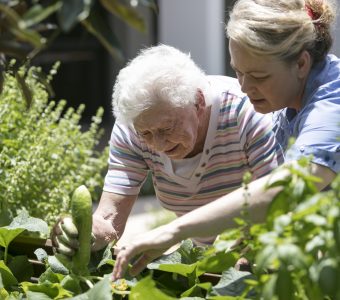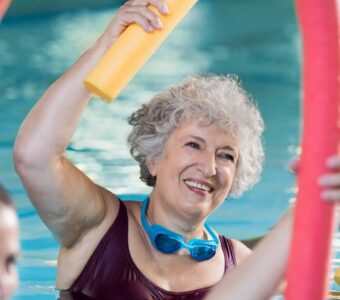Summer heat safety tips for seniors
While summer can be a great time for outdoor activities such as barbecues and picnics with family and friends, it can be a time when many older Australians are at an increased risk of heat-related conditions.
As we age, we aren’t able to regulate our body temperature as well as when we were younger, and as a result, need to take some extra care in the heat. The good news is that there are some simple steps we can take to stay safe and comfortable when the temperature rises.
Heat stress happens when the body can’t maintain a temperature that’s healthy. Some of the things that increase the risk of heat stress for older Australians include living at home alone, some medications and having ongoing health issues.
If precautions aren’t taken, heat stress can unfortunately lead to illnesses ranging from mild conditions, to potentially very serious problems such as heatstroke.
It’s important to recognise symptoms of heat stress such as dry and flushed skin, rapid heart rate, muscle cramps, looking pale, headache, nausea and vomiting, disorientation and fainting, and seek help immediately.
5 top tips for keeping seniors safe in summer
Stay hydrated
Keep cool and fresh water within reach, ensure that you drink it regularly and limit caffeinated drinks and alcohol, which can have a mild diuretic effect.
Keep your cool
When the mercury rises, it’s important to be summer savvy and choose to stay indoors, avoid vigorous exercise and wear cool, comfortable clothing that’s light. Closing your window blinds or curtains and using your air conditioner can help reduce the temperature in your home. If you don’t have air-conditioning, a fan or wet towel can also make a difference, along with having someone take you to a local shopping centre or to the movies where it’s cool.
Stay connected
Ask your friends and family to stay in touch with you and let them know if you plan to spend time outdoors, so they can help make sure you’re safe. If you are a loved one, friend or neighbour of an older person, check in on them regularly to make sure they’re safe and are taking precautions in the heat. It’s also a good idea to check the weather report for updates on weather conditions in your area.
Chat to your GP about medications and keep emergency contacts handy
If you take medications, talk to your GP if you are at increased risk of heat stress. It’s a good idea to keep a list of phone numbers handy and in reach in case you need help.
Protect your skin and eyes
Wearing a hat and sunscreen when outdoors can help you keep you healthy and sporting some sunglasses can protect your eyes.




